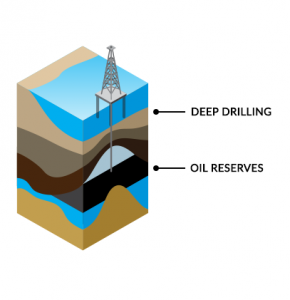All Categories
Featured
Table of Contents
What Is A Geophysicist? in Watermans Bay Oz 2020
Are you seeking the best kind of b-school? Get in touch with MBA programs looking for candidates like you. Explore schools of all sizes, ranked colleges, city and big-campus schools and more. Apply. Pay. Prep. Study. Succeed. We've got you covered. Get in touch with master's programs around the country to get an edge over the competition.

A geophysicist studies various elements of the earth. See a video to learn what a geophysicist: Geophysicists must make a minimum of a bachelor's degree; however, this is for an entry-level position.
If you want do research study you should pursue a Ph. D. Undergrad coursework normally consists of geology, mathematics, ecological science, or physics. Postgraduate degree require more specific research studies in the specialty of option. Areas can consist of oceanography, climatic physics, meteorology, planetary, petroleum, environmental, and mining. Task prospects are greater if you have a strong background in computer science or technology.
Career Guide: Geophysicist in Forrestdale Oz 2021
Access to these opportunities might be restricted depending upon where you live; nevertheless, internships or summertime programs with geophysical companies, university geophysics department, or the U.S. Geological Study can be options. You can find a list of a list of opportunities on the United States Geological Study (USGS) websites' Path Programs tab (opens in another link).
If you have yet to graduate high school, taking as lots of science and math classes as possible would be a plus. Geophysicists also deal with computer systems while looking into, so computer system courses can likewise be valuable, as mentioned earlier in this short article. Many geophysicists specialize in a location of geophysics. For that reason, the job description would alter pending on the specialized.
A geophysicist's tasks can consist of determining, tracking, and recording information from numerous physical residential or commercial properties on earth. Geophysicists frequently have to take a trip worldwide to examine geological events that have occurred or might have been forecasted.
Geophysicist Education in East Perth Western Australia 2022
Jay Wellik, a geophysicist, studies volcanos. His area of know-how in geophysics is looking into why volcanos emerge and what signs there might be that an eruption might happen. He tracks seismic activity and after that follows what happens previously, throughout, and after a volcano erupts. Geophysicists generally work full-time hours; however, they often work irregular hours, as discussed previously.

You can discover extra info about Geophysicists along with additional educational products on the U.S. Geological Survey site (links open in a brand-new window). Laura Stern, of the U.S. Geological Survey at the Gas Hydrates Lab in Menlo Park, California: We make a variety of various hydrates in the laboratory.
We also make carbon dioxide hydrate, ethane hydrate, gas, a number of different structures. Liquid nitrogen is very cold. It's about 100 degrees chillier than the temperature level at which these hydrate samples would dissociate, when they would decompose to ice plus gas on the tabletop. In here we have a little piece of methane hydrate.
What Does A Geophysicist Do? in Ferndale Australia 2021
So the samples we make, their polycrystalline. They appear like snow, it appears like compacted snow but truthfully, it does include gas inside. Take a little piece off here and as it warms up, you'll begin to see it pop. It's going back to ice plus gas and after that as the ice would melt as it continues to warm, it will end up being water plus gas.
My name is Steve Kirby, I'm a Geophysicist here at the U.S. Geological Study in Menlo Park. I deal with Laura Stern who is also a Geophysicist in this laboratory that is devoted towards the investigation of planetary ices and gas hydrates. Gas hydrates in nature occur in very remote locations and they are very intricate with the interactions and conditions that they form under and samples that are raised are under some sort of alternation or decay.
This is an uncommon laboratory and there are only a handful of them worldwide and we are extremely fortunate to be here at the Geological Study and to have the chance of working on them. Bureau of Labor Stats, U.S. Department of Labor, Occupational Outlook Handbook, Geoscientists. National Center for O * Web Advancement.
Geophysicist Bob Embley: Ocean Exploration Careers in Wellard Western Australia 2023
This video was produced by the federal government for the U.S. Geological Study. The USGS Gas Hydrates Lab is funded by the Department of Energy and the USGS Gas Hydrates Project.
Latest Posts
Geophysicist Job Description in Guildford Aus 2023
Marine Geophysical Surveying - in Maddington Aus 2023
Geophysical Survey - Suffolk Heritage Explorer in Millendon WA 2023